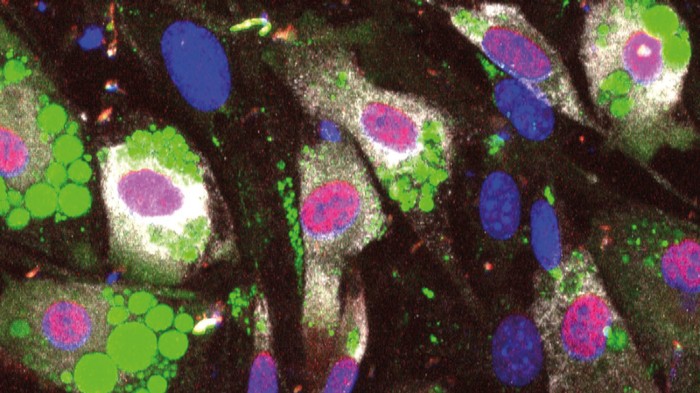Hay que dormir bien.

Precursor cells (blue) mature into adipose cells full of fat (green) with help from hormones, whose levels surge and fall over a day. Credit: Z. Bahrami-Nejad et al/Cell Metab.
PHYSIOLOGY
Why fat piles on when the body's daily cycles are in disarray
Changes in the patterns of hormone production might cause weight gain when circadian rhythms are disrupted.
Hormones called glucocorticoids stimulate the production of mature fat cells. In humans, glucocorticoid levels naturally rise in the morning and fall in the evening, but stress can also elevate them.
To study how glucocorticoid levels relate to weight gain, Mary Teruel at Stanford University in California and her colleagues injected mice with glucocorticoids at varying times of day, but fed all mice the same amount of food. Mice given the hormone late in their wakeful phase gained weight. But mice injected just after they'd woken up — when their glucocorticoid levels were already naturally high — did not.
The results suggest that high glucocorticoid levels at unusual times of day could contribute to weight gain. This could help to explain why stress and disrupted sleep cycles are linked to rising weight.

0 Comments:
Post a Comment
Subscribe to Post Comments [Atom]
<< Home